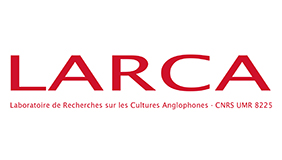2-day symposium sponsored by the Terra Foundation for American Art
15–16 March 2024
INHA: Institut national d’histoire de l’art, Paris
Submission deadline: 15 November 2023
new.monuments.paris@gmail.com
As demonstrated by Wendy Bellion’s scholarship, iconoclasm lies at the foundation of the United States. Yet Bellion also shows us that, rather than being sealed in the past, iconoclastic projects continue into the present. Iconoclastic destruction invariably entails creation—whether it is the construction of new monuments to replace the toppled ones, or the coalescence of a new community, movement, or nation.
If in 2010 Erika Doss’s Memorial Mania: Public Feeling in America examined the country’s obsession with memorialization, we have since witnessed a new wave of destruction mania. Confederate statues that for years resisted protests and withstood condemnations have fallen to the ground. The past decade has seen a surge in destructive attacks on all kinds of publicly sited monuments across the United States, as well as attendant debates on how best to represent American history and society.
Some of the most pertinent questions, and some of the most ingenious solutions, regarding monument-building and memorialization have been put forward by artists. At the same time, as we have repeatedly seen, artists’ ideas can be challenged and thwarted by various actors, stakeholders, and grassroots initiatives. Counter-monuments, too, fall prey to iconoclasm.
This conference seeks to bring together scholars interested in monuments and their destruction, public history and public art, historical reenactments, memory studies, and artistic practices across diverse media. It asks how the multiple waves of the Black Lives Matter protests have impacted the American monumental landscape. What can we speculate about the future of monuments and memorials in the United States? What is the relationship between iconoclasm and decolonization? How can artists help us reimagine commemoration?
We invite papers that evaluate recent commemorative projects, examine acts of iconoclasm and their aftermath, and study or propose novel approaches to representing historic events. We are especially interested in learning how previously suppressed histories and underrepresented groups can be brought into public consciousness via innovative artistic and community endeavors.
Further questions to consider:
- What can we learn from newly erected monuments and memorials?
- Who should be in charge of memorials and other forms of historical commemorations?
- Should we abandon the practice of commemorating and celebrating individuals?
- Which forms and formats of memorialization might constitute the most successful replacement for traditional monuments?
- How can uprisings and unrest be commemorated?
- How can previously unrepresented, erased histories be brought into view in the present?
- Are statues of civil rights heroes an appropriate replacement for the toppled Confederate figures?
- Can performance-based and ephemeral media operate as monuments?
- What is the relationship between reenactment and commemoration?
- What is the role of lens-based technologies in memorialization and monumentalizing?
- Can we—and if so, how—honor struggles that have yet to be resolved?
Proposals (300 words max.) for 20-minute presentations, along with short biographical information, should be sent in .docx or PDF format to Dr Martyna Ewa Majewska, Terra Foundation Postdoctoral Research and Teaching Fellow in Paris, at new.monuments.paris@gmail.com.
Submission deadline: 15 November 2023
Download CFP : New Monuments – Symposium Call for Papers





